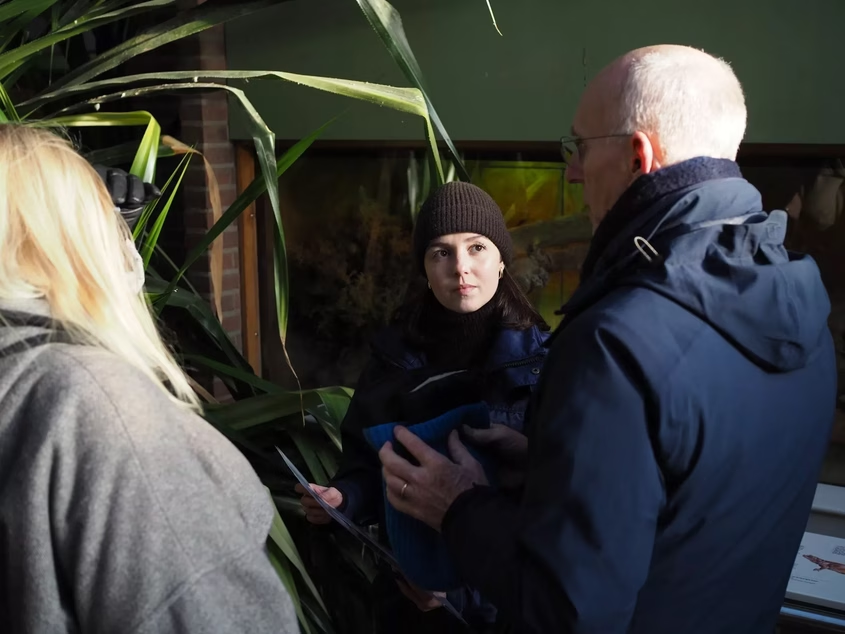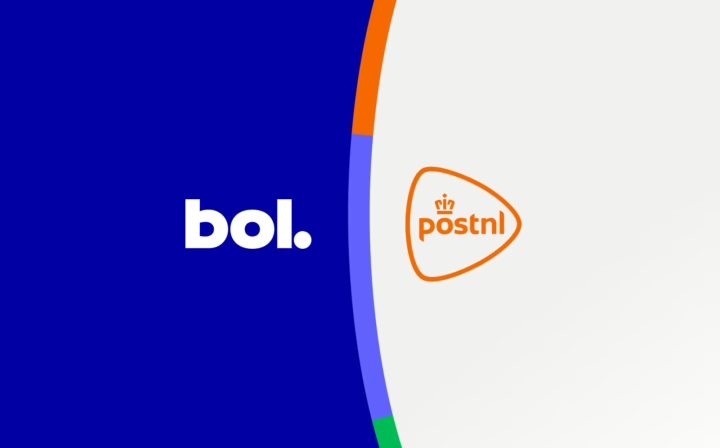Om een ultieme ervaring neer te zetten, moet je je klanten door en door leren kennen. Je moet weten wat hun wensen en behoeften zijn, wat ze frustreert, waar ze tegenaan lopen, waar ze van dromen. Hoe beter je je klanten kent, hoe beter je kansen kunt spotten. Kansen voor een nieuwe propositie. Kansen om een heel specifiek probleem te fixen met een slimme oplossing.
Je leert je klanten niet zomaar kennen – daar is Exploratief Onderzoek voor nodig. Met Exploratief Onderzoek kijk je voorbij je dienst of product. Je stapt in de wereld van je klanten. Je kijkt met ze mee. Je volgt ze een tijdje. Je gaat met ze zitten om te begrijpen wat zich allemaal afspeelt voor, achter en naast het scherm.
Je leert je klanten niet zomaar kennen – daar is Exploratief Onderzoek voor nodig.


Hoe wij Exploratief Onderzoek aanpakken
Er zijn verschillende manieren om Exploratief Onderzoek in te vullen. Waar je voor kiest, hangt onder andere af van je doelgroep, je onderzoeksvraag, je product. Dit zijn vier methoden die wij het vaakst gebruiken:
-
Dagboekstudie
Met een Dagboekstudie (of ‘Diary study’) volgen we je klanten voor langere tijd. We zijn dagelijks met ze in contact, vaak via WhatsApp. We stellen vragen, we geven kleine opdrachten. We krijgen appjes, voice-memo’s, screenshots, foto’s en video’s. Dit geeft diepgaand inzicht in het gedrag en de gedachten die je klanten hebben rondom jouw dienst of product.
-
Diepte-interviews
Deze methode zetten we in als we meer willen leren over behoeften en frustraties van je doelgroep. We zitten één-op-één met ze. We stellen vragen, laten wat ideeën zien. We doen Diepte-interviews vaak in combinatie met een Dagboekstudie: eerst een tijdje volgen en dan samen zitten om uit te diepen wat we allemaal gezien hebben.
-
In-context onderzoek
Exploratief Onderzoek gebeurt niet altijd in het lab. Soms zoeken we je doelgroep op in hun natuurlijke omgeving, op de plek waar ze je dienst of product gebruiken. We observeren, we stellen vragen. Zo krijgen we een betrouwbaar en volledig beeld van de klantervaring. En we praten niet alleen met klanten: we gaan ook langs bij experts of ervaringsdeskundigen in je eigen organisatie, bijvoorbeeld bij de klantenservice. Dat helpt ons om een scherp beeld te schetsen.
-
Kwantitatieve validatie
Exploratief Onderzoek sluiten we vrijwel altijd af met een kwantitatieve validatie. Zo weten we zeker dat inzichten een afspiegeling zijn van je hele doelgroep. Het geeft bovendien inzicht in welke behoeften het belangrijkst zijn – dat helpt weer tijdens het prioriteren.
Continu een vinger aan de pols
Exploratief Onderzoek kan wat groter en eenmalig, maar het werkt het best als je het continu en in kleine stapjes doet. Dat noemen we Continuous Discovery. Door continu te verkennen, houd je de veranderende behoeften van je klanten en de markt scherp. Zo zorg je ervoor dat je altijd mee kan bewegen en met de juiste oplossingen kan komen. Oplossingen die waarde hebben voor je doelgroep en goed zijn voor je organisatie.
Trots op onze klanten
Niet alleen inzichten, maar ook oplossingen
De inzichten die uit Exploratief Onderzoek komen zijn fundamenteel. Ze gaan over dieperliggende behoeften en frustraties. Over grotere onderwerpen. Ze zijn abstracter dan inzichten uit bijvoorbeeld een UX Test. Daarom besteden we extra aandacht aan de overdracht. We nemen je team en je belangrijkste stakeholders mee in alles wat we geleerd hebben. We laten de inzichten tot leven komen. En we pakken een moment om samen alvast wat oplossingsrichtingen te bedenken, zodat je daarna zelf verder kan.
Wat je van ons mag verwachten
Onderzoek is een vak apart. En we doen het al meer dan twintig jaar. We zijn echte onderzoekers: we zijn precies, we zijn scherp. Dit is wat je van ons mag verwachten als we samen aan de slag gaan:
- Ervaren researchers die je team op sleeptouw nemen. We doen al onderzoek sinds we in 2000 met Valsplat begonnen. Het zit in ons dna. Het is het fundament van alles wat we doen.
- Een strategische blik. Je krijgt meer dan een handjevol inzichten. Wij denken mee over de toepassing van alles wat we leren, over de vervolgstappen.
- De afgelopen 20 jaar hebben we onderzoek gedaan voor zo’n beetje elke grote speler op de Nederlandse markt die digitaal serieus neemt. Die opgebouwde kennis – daar pluk je de vruchten van.

Verder praten? Je mag mailen of bellen.
Lia Bardoel — Lead Service Design & Innovatie
lia.bardoel@valsplat.nl LinkedIn











